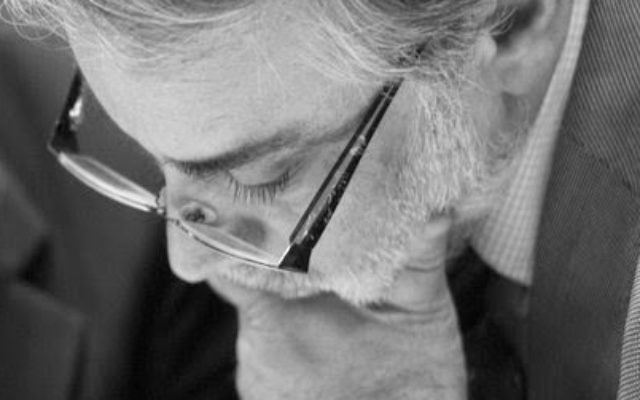No Life Is Perfect
By Rabbi Hayyim Kassorla | Congregation Or VeShalom
In the month of Elul, we blow the shofar every day in many communities as an invitation to the serious business of introspection and self-analysis before Rosh Hashanah arrives. We think of the year we have just lived, and we are perhaps consumed with self-doubt and regret.
Maybe we, or one of our loved ones, experienced a crisis, or we lost important people in our lives. Many of us were confronted with a loss of income, a rise in debt or a different type of life stressor. As our stress rises with the tone of the shofar, we wonder what we should do to dispel these feelings and how we can summon the positive thoughts we need to face the year to come.
It is the last thing on our minds to be grateful, but that is exactly what the rabbis in the Talmud suggest. Gratitude, they argue, is one of the most powerful responses we can show. This is why gratitude is one of the most basic tenants of Judaism. That is why Yehudi, Hebrew for Jew, comes from the root of the word that means thanks.
Life is never perfect. It may seem as if other people’s lives are perfect as we watch “reality shows” and video snippets that feature celebrities, friends and even family enjoying life, seemingly without a care in the world. We open Facebook and find our friends taking a trip around the world, riding around in their new car, or celebrating their just-married son or daughter in a grand ceremony.
Compared with those lives, what is ours? We look at our imperfect life and find little to be grateful for. Even when everything seems all right in our own lives, we know the true measure of the frustration, fear, angst and loss we feel every day.
But that is the point, isn’t it? We don’t show our pain to others, and they don’t show their pain to us: The vacationing friend you envy may be traveling to get over a loss; that new car may be the result of a traffic accident; and that grand marriage ceremony may have put your friend in debt. But it is only their happiness we see. Is that a bad thing?
No life is perfect, but we must be grateful for what he have and show that gratefulness on a daily basis. Too often we overlook the blessings in our own lives and focus only on the negative. This is why gratefulness is so important and is the basis of a healthy outlook for Rosh Hashanah. If we take a moment to thank G-d for the good things in our lives, we realize how precious and wonderful life can be. Through those thanks, we learn to be thankful.
The rabbis in the Talmud state that as long as one is alive, there is no room for complaint. We must force ourselves to look at the positive when we say a prayer of thanks, and through that prayer, we must see beyond our own selfish take on the world.
My wife often says to our children, “You can complain that roses have thorns, or you can rejoice that thorn bushes have roses.” A prayer of gratitude can alter our attitudes in powerful ways, and G-d has provided us, literally, with thousands of ways in which to express that gratitude. Our prayer book during the year and especially on Rosh Hashanah and Yom Kippur is filled with expressions of thanks — from the most basic Modeh Ani prayer thanking G-d for one more day of life to expressions of thanks for surviving a dangerous trip or a difficult childbirth.
But not every thank-you is directed to G-d. We must also thank those who have brought us the beauty of life in its many forms. Rabbi Chaim Soloveitchik (1853-1918), even when he was world-famous in the Jewish world, would stand in honor of his first-grade teacher, who taught him the Hebrew alphabet. How many of us remember our first-grade teachers?
Likewise, we are instructed to stand up for our parents, to honor them and to treat them with respect for the lives they have given us — even if our relationship with our parents wasn’t the best.
Life is so precious and so beautiful that even a moment of life is a thing to be grateful for. So as you look back over the year that was, think about how, even in the most difficult of times, you were blessed — and give thanks.
I take this opportunity on behalf of Congregation Or VeShalom to extend to all in the community best wishes of shana tova. May it be a good year for us and for Israel. May we all be healthy and robust for many years to come. And may I express my personal thanks to G-d and to the congregants and friends of Congregation Or VeShalom, now commemorating our 101st anniversary serving Atlanta’s community, for the privilege of teaching Torah in all its wondrous ways and applications. Amen.





comments